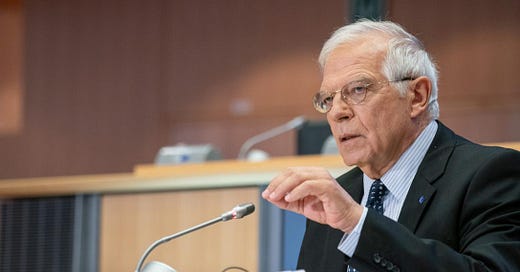Iran nuclear deal: Has the EU become a credible geopolitical player?
The Iran nuclear deal negotiations unexpectedly reopened last week, thanks to a push from the EU. Is the Union getting serious at the game of diplomacy?
The recent revival of the Iranian nuclear deal is good news for the stability of the Middle East and the world. After the Trump administration decided to withdraw from the negotiations in 2018 and imposed heavy sanctions on Teheran’s regime, the relationship between Iran and the West was sour.
This article is a premium post. To read it in full, consider upgrading to a paid subscription. Thank you.
EU was able to restart the Iran nuclear agrement
What is the EU’s role in the negotiations?
The parties of the agreement - if one is eventually signed - are the United States on one hand, and Iran on the other. Europe acts as a negotiator and intermediary, Iran refusing to negotiate directly with its American rival.
Russia, China, and the United Kingdom are also part of the discussions. On the side of the European Union, France and Germany are deeply involved. The talks take place in Vienna, the capital of Austria.
The deal proposes that, against the termination of US sanctions on Iran, the latter would destroy its reserves of highly-enriched uranium and limit its nuclear fuel to limits unfit to develop a bomb. Nuclear energy would then be used only to run power plants1.
Keep reading with a 7-day free trial
Subscribe to The Beubble to keep reading this post and get 7 days of free access to the full post archives.





